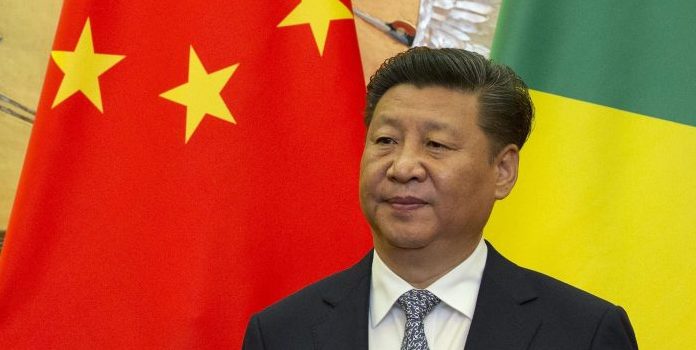(Headline USA) While many of presidential son Hunter Biden‘s financial investments seem to have a way of skating past regulatory hurdles and other legal challenges that would deter even the keenest of wits—much less a crack-addicted sex fiend—at least one appears poised to go belly up.
Civil unrest in regions surrounding Congolese cobalt mines could force Hunter’s Chinese government-backed firm to cut its losses before the electric batteries buoeyed by his dad’s multi-trillion Build Back Better plan ever see the light of day.
China on Wednesday urged its citizens to leave three provinces in eastern Congo as violence intensifies in the mineral-rich region.
A posting from the Chinese Embassy in Kinshasa on the WeChat online messaging said a number of Chinese citizens had been attacked and kidnapped over the past month in the provinces of South Kivu, North Kivu and Ituri, where several anti-government rebel groups have a presence.
It said Chinese residing in the three provinces should provide their personal details by Dec. 10 and make plans to leave for safer parts of Congo.
Those in the districts of Bunia, Djugu, Beni, Rutshuru, Fizi, Uvira and Mwenga should leave immediately, it said, adding that any who do not do so “will have to bear the consequences themselves.”
“We ask that all Chinese citizens and Chinese-invested businesses in Congo please pay close attention to local conditions, increase their safety awareness and emergency preparedness, and avoid unnecessary outside travel,” the embassy said.
Presumably, that includes the withdrawal of individuals associated with China Molybdenum, the mining company that purchased Tenke Fungurume following a $3.8 billion deal brokered by Hunter’s BHR Partners.
It is unclear, however, if Hunter maintained any sort of stake in the cobalt mines or if he had already cashed out following the sale.
The scandal, only recently uncovered in a series of New York Times articles, drew harsh criticism, including calls from Sen. Chuck Grassley, R-Iowa, and others for an investigation.
“China’s goal is to control the global supply chain from the metals in the ground to the batteries themselves, no matter where the vehicles are made,” wrote the Times.
But the recent unrest, led by groups of African warlords, adds a new wrinkle to the Asian superpower’s imperialist ambitions—one that may come with at least a touch of irony as western nations have condemned its recent exploitation of developing countries.
It suggests that with its determination for global dominance, China also risks supplanting the US for its unenviable status as the “Great Satan” of countries who see its presence in a less than welcoming light.
No details of the incidents were given, although the embassy last month reported five Chinese citizens were abducted from a mining operation in South Kivu, which borders Rwanda, Burundi and Tanzania.
It warned a the time that the security situation in the area was “extremely complex and grim” and that there was little possibility of sending help in the event of an attack or kidnapping.
No details were given about those kidnapped, who they worked for or who was suspected of taking them.
Several armed groups including the Democratic Forces for the Liberation of Rwanda, known by its French acronym FDLR, the Mai-Mai and the M23 regularly vie for control of eastern Congo’s natural resources.
Despite the danger, Chinese businesses have moved into Congo and other unstable African states in a quest for cobalt and other rare minerals and resources. Chinese workers have also been subject to kidnappings and attacks in Pakistan and other countries with active insurgencies.
Security was a key topic at a meeting Monday in Dakar, the capital of Senegal, on Monday, between Chinese Foreign Minister Wang Yi and his Congolese counterpart Christophe Lutundula, according to China’s Xinhua News Agency.
China’s government and ruling Communist Party “attach great importance to the safety and security of Chinese enterprises and Chinese nationals overseas and the Chinese side has been extremely concerned with the recent serious crimes of kidnappings and killings of its citizens in the DRC,” Wang said, using the acronym for the Democratic Republic of Congo.
Wang urged Congo to secure the release of those kidnapped and create a “safe, secure and stable environment for bilateral cooperation.”
Xinhua quoted Lutundula as saying Congo would take “forceful measures” to investigate the crimes, free the hostages, punish the culprits severely and safeguard national security and restore stability to the country’s east.
Earlier this week, Uganda said it launched joint air and artillery strikes with Congolese forces against camps of the extremist Allied Democratic Forces rebel group in eastern Congo.
The ADF was established in the early 1990s in Uganda and later driven out by the Ugandan military into eastern Congo, where many rebel groups are able to operate because the central government has limited control there.
At least four civilians were killed less than two weeks ago in Uganda’s capital when suicide bombers detonated their explosives at two locations.
The Islamic State group claimed responsibility, saying the attacks were carried out by Ugandans. Ugandan authorities blamed the ADF, which has been allied with the Islamic State group since 2019.
Adapted from reporting by the Associated Press

